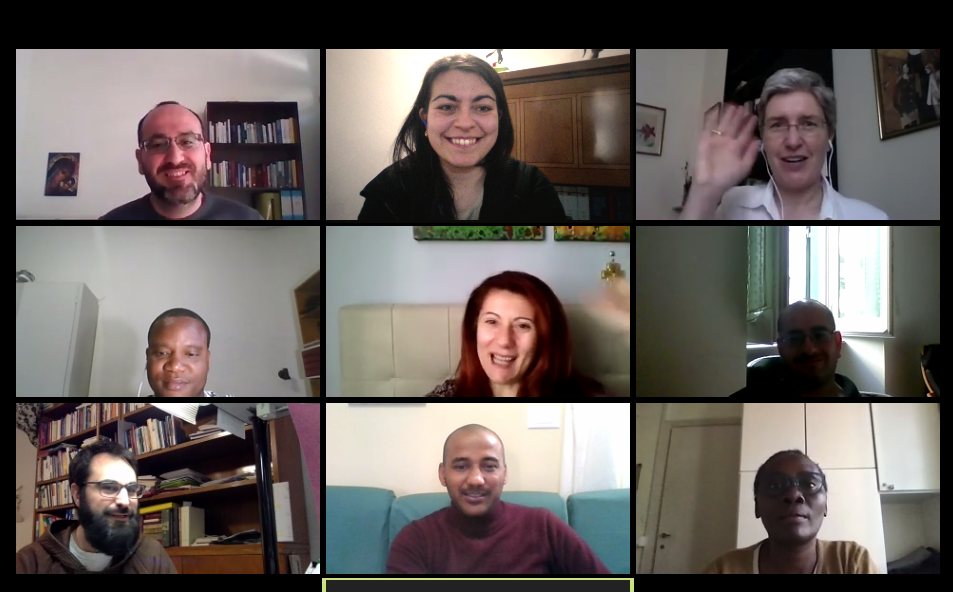
Checking in with Dr. Angela Rinaldi: How COVID changed the course of her course
It’s been a time of worldwide adaptation. When the initial response to COVID-19 began in Italy, it seemed, at first, like it might mean only a couple of weeks out of the office. We scrambled to recreate our work rhythms from home. We dealt with the undoing of our long-planned for events and worked to ensure a presence for our students whose lives and hopes were also shaken. Now, as the quarantine restrictions begin to roll back in Italy, there is both a sense of relief and a feeling of growth in facing challenge to change.
I asked Dr. Angela Rinaldi if she would tell us about her experience with a new initiative the Centre for Child Protection launched this semester: a “learning to teach” workshop led by our licentiate students which is a part of the “Creating and Conducting Formation Sessions” course. The three-hour sessions had been planned to be held in person on March 17th and 24th, April 21st and May 5th. Due to the emergency situation the courses migrated online and were held via Zoom.
Dr. Rinaldi organized the first two sessions in English and the May 5th Italian language meeting together with some of the licentiate students. I asked her to describe what the sessions consisted in. She explained, “These were introductory seminars on safeguarding in various areas. Gregorian students and alumni interested in the topic were able to register for the four in which I participated. Each of the meetings was attended by roughly 15 to 45 people. The groups were very diverse both in cultural and professional terms.”
Although we are now entering “phase two”, Dr. Rinaldi noted that some changes were likely to continue to impact the way we teach. “In pandemic situations (and also in the next phases of recovery), I believe that online teaching is a very important area for the CCP. First of all, it allows us to keep up with the times, since we are witnessing a conversion — or rethinking — now underway of the teaching tools offered by universities; secondly, it would be a return to our ‘origins’ at the same time. Before the diploma and licentiate face-to-face courses began, the CCP built the network of its partners thanks to its e-learning program. From all over the world, the many institutions with whom we collaborate have been able to get to know and connect with the CCP thanks to our online courses; and even today it is like this: many partners say they are happy to collaborate with us and to study the materials that — by agreement — we provide them.”
I asked her what she thought of the future of such events, both basic training for teachers and online workshops hosted here in Rome. She responded that such initiatives can enrich our core offerings and that there are no big limits on the possibilities for online instruction. She noted however, “a face-to-face lesson is certainly a richer experience in relational and human terms.”
She added, “The sessions in which I participated were seminars with fairly basic content but still left room for further study. They had the merit of providing the first tools for work within the field of safeguarding as well as strengthening a sense of common responsibility, which pushes each and every person to commit to creating a safer world and Church.”
Image: Zoom class, May 5, 2020—courtesy of Dr. Angela Rinaldi

